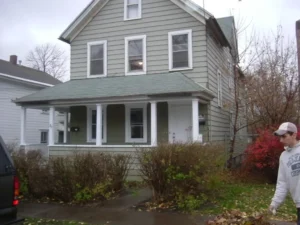If you ever become so inspired to start a law blog and don’t start looking at your website traffic stats for at least 3 months.
When I started this blog in January I had 316 hits (not including bots) on the site. I did a little better in February with 344 hits. In March things started to pick up and I had 18,744 hits. In April I had 30,695 hits. I did not view this blog’s stats until early April.
The good in all of this is that I have an archive of entries that I have written and almost nobody besides me has read.
This weekend was very busy so today’s entry is recycled. I’ll be back with something brand new on Tuesday.
This was originally published on January 12, 2008:

The Day runs this article which illustrates just how much of a foreclosure problem exists in Connecticut:
“Personally, this has been a deeply troubling experience,” said state Banking Commissioner Howard F. Pitkin on Friday, referring to the subprime lending fallout. “The biggest concern is the economic consequences of this … how deep it will reach into the economy. So many feeder industries are related to home lending: building, the sale of homes. When inventory increases and demand is not increasing, prices will go down. I’m concerned about that.”
“Record foreclosures may depress property values, create neighborhood instability and blight as well as place increased demand on the supply of affordable rental property,” according to the task force co-chaired by Pitkin.
What often gets lost in news about foreclosure is the plight of tenants. A lot of subprime loans were written on investment properties. As the real estate market has become depressed, many landlords who purchased rental properties have found themselves unable to pay the mortgage on their rental property when an adjustable rate mortage resets to a higher rate.

Get the Compensation You Deserve. Our Experienced Lawyers Can Help.
According to the Boston Globe it is standard industry practice to evict tenants in foreclosed buildings. The Globe article says that mortgage companies find it easier and more profitable to sell an empty building and follow the same procedure in every case: “clean it, clear it, and sell it.” Nice.
In Connecticut, good tenants, who have paid their rent on time and have never caused any problems face eviction because their landlord failed to pay the mortgage and because mortgage companies find it more profitable to “clean it, clear it, and sell it.”

